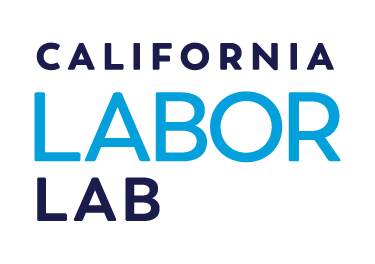2024 Conference— Modern Work & Workers Voices
Recordings of all sessions coming soon!
More information about the 2024 conference agenda and speakers.
About the conference
In 1972, Studs Terkel published Working. The book was about good and bad jobs, written in a time when it was possible to extract meaning, economic sustenance, and even satisfaction with many, if not all jobs. Now, as current economic and political forces drive down wages and erode worker protections, we find sustenance is often impossible and meaning has been stripped from modern work.
The Third Annual Conference of the California Labor Lab focuses on the state of working today and the recovery of workers’ voice. With continued low unemployment, worker expectations and an increased sense of empowerment may again produce some leverage in the labor market. Some signposts of that leverage include increases in local minimum wages, successful efforts by labor unions to increase wages and improve working conditions in previously unorganized industries, and white collar workers’ resistance to demands to forgo remote work.
This conference is organized around thematic modules that explore the experience of working in the contemporary economy, with a focus on California, the nation’s largest state and, if it were a nation, said to have the fifth largest economy in the world.
Speakers included:
- Julie A. Su, U.S. Department of Labor
- Lorena Gonzalez Fletcher, JD, California Labor Federation
- David Weil, PhD, Brandeis University
- Alfredo Carlos, PhD, California State University, Dominguez Hills
- Marnie Dobson, PhD, Healthy Work Campaign Director
- Suzanne Teran, MPH, Labor Occupational Health Program
- Wendelin Slusser, MD, MS, University of California, Los Angeles
- Theodore F. Robles, PhD, University of California, Los Angeles
- Liz Ortega, California State Assembly
- Constanza Nider, CHEU
- Deysi Gomez, California Fast Food Workers Union
- Bianca Frogner, PhD, University of Washington
- Alix Gould-Werth, PhD, U.S. Department of Labor
- Catherine Hutchinson, MS, CSU Employees Union
- Nancy Zuniga, MPH, Instituto de Educación Popular del Sur de California (IDEPSCA)
- Rafael Jaime, PhD Candidate, University of California, Los Angeles
- Jessica King, MSW, PhD, PHI
- Nicole Moore, Rideshare Drivers United
- Jane Thomason, CIH, National Nurses United/California Nurses Association
- Justin P. Boren, PhD, Santa Clara University
- Jim Philliou, Cal State University Employees Union, SEIU Local 2579
- Elmer Lizardi, California Labor Federation
- Robert Harrison, MD, MPH, California Department of Public Health
- Daniel Schneider, PhD, Harvard University
- Monique Hosein, DrPH, Labor Occupational Health Program
- Laura Stock, MPH, Labor Occupational Health Program
- Victor Rubin, PhD, California Labor Laboratory
- Laura Trupin, MPH, California Labor Laboratory
- Ed Yelin, PhD, California Labor Laboratory
2023 Conference— Surveillance, Monitoring, & Data Gathering in Contemporary Employment
View all recorded sessions here.
More information about the 2023 conference agenda and speakers.
About the conference
Through the work of crusading journalists and advocates, the public has been made acutely aware employers are using technology to monitor workers’ performance. Some workers have had to forego mandated breaks – or come into work during an illness – to meet productivity goals. Technology has also been used to help protect workers from harmful exposures on the job and to uncover work-related illness through surveillance of health records and workers’ compensation claims.
This conference is designed to describe the extent of technology use in work, how they are used and why, and what the impacts are on workers and firms. Learners will explore both negative effects of workplace monitoring, and how technology can be a force for good by helping make workplaces safer and more conducive to creativity. The conference will close with a discussion of what is being done – and what can be done – to limit draconian uses of technology and to create incentives for the design of more healthful work through policy, advocacy, and community engagement.
Speakers included:
- Karen Levy, Cornell University
- Lisa Kresge, UC Berkeley Labor Center
- Tracy Vargas, University of North Carolina at Pembroke
- Julia Ticona, University of Pennsylvania
- Christopher D. Nye, Michigan State University
- Kathleen Mosier, TeamScape
- Robert Harrison, CDPH, University of California, San Francisco
- Lee S. Newman, University of Colorado
- Tasha Joshua, IKEA
- Wilneida Negrón, Coworker
- Kristen Harknett, UCSF Shift Project
- Daniel Schneider, Harvard University
- Stefano Schiavon, Center for the Built Environment,
University of California, Berkeley
2022 Conference— Precarious Work: Health & Economic Threats
View all recorded sessions here.
More information about the 2022 conference agenda and speakers.
About the conference
In recent decades, employers have increasingly made labor part of just-in-time inventory through mechanisms such as using alternative employment arrangements (project- , task- , and contract-based employment), contingent forms of work, and erosion of working conditions. This has led to economic precarity for workers which, in turn, threatens their health and well-being. This conference is designed to describe the changes in employment and the consequences for worker health as well as recent attempts to mitigate the effects of these changes through labor activism within and beyond individual workplaces and firms and responsive public policy.
Speakers included:
- Jacob Hacker, Yale University
- Ash Kalra, Member of the CA Assembly
- Mariana Vituro, Domestic Workers Alliance
- John Howard, NIOSH
- Kristen Harknett, UCSF SHIFT Project
- Daniel Schneider, Harvard University
- Manal Azzi, International Labor Organization
- Monica Anderson, Pew Research Center
- Emma Goldberg, NY Times
- John Swarzberg, UC Berkeley School of Public Health
- Christina Maslach, UC Berkeley Department of Psychology
